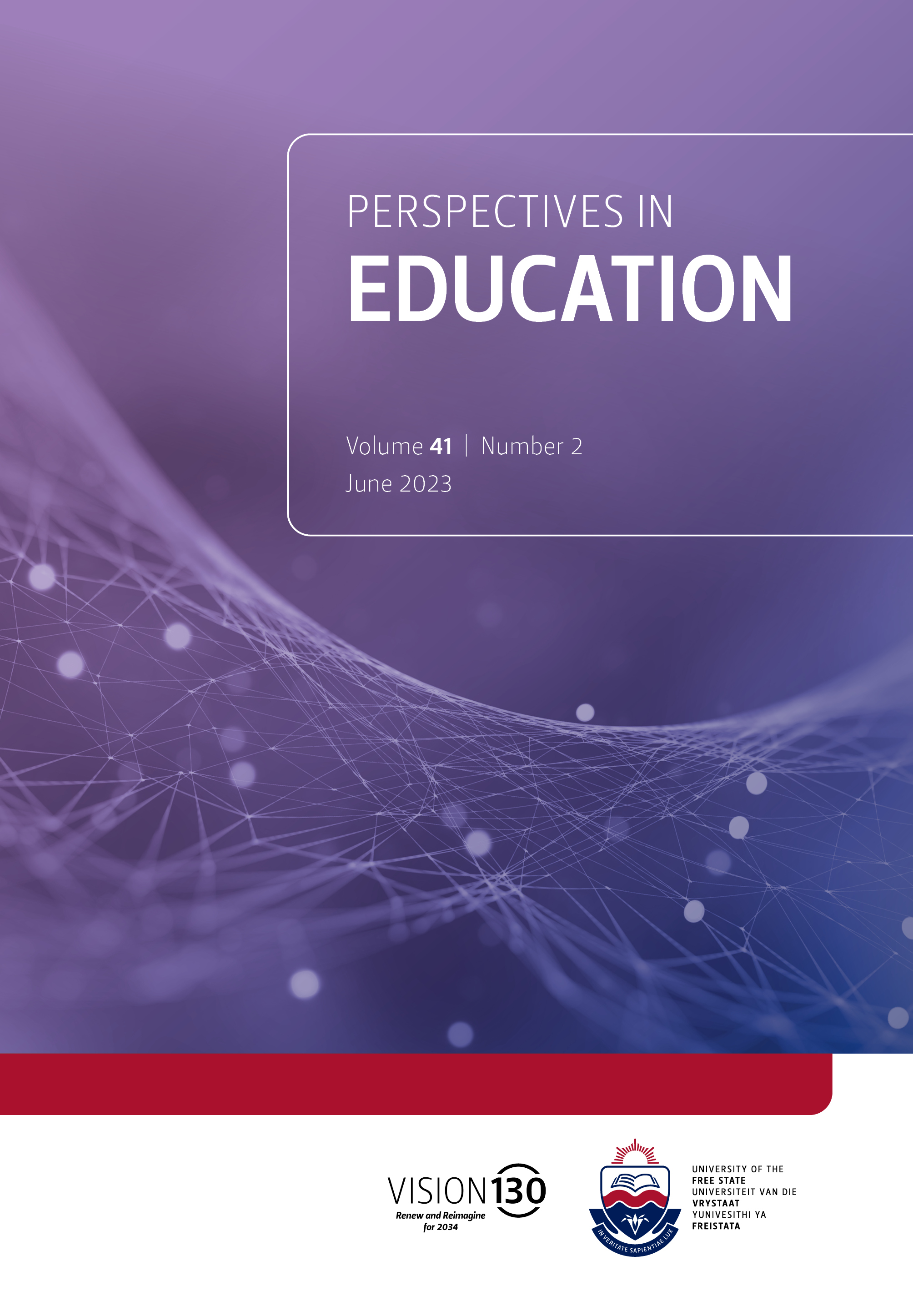Perspectives on dialogue and care in teaching, learning relationships in an ever-changing online higher education landscape
DOI:
https://doi.org/10.38140/pie.v41i2.6291Keywords:
pedagogy of care, social capital, technology, Covid pandemic, higher education, COVID-19 pandemic, Fourth Industrial Revolution, Learning Management System, student engagement, student successAbstract
This article explores whether pedagogies of dialogue and care are evidenced in how lecturers engage online with their students in teaching and learning on Learning Management Systems (LMSes). Many lecturers in the online higher education landscape predominantly come from affluent educational habitus, whereas many students come from working-class backgrounds. Many students struggle with internet connectivity, the cost of mobile data, as well as software and hardware issues that prevent them from accessing quality tertiary education. The South African education and training system is unevenly distributed and has too many barriers to growth for many working-class students from an online learning perspective. All online higher education institutions are responsible for creating teaching and learning outcomes that are achievable for students, as well as empowering them to take part in their own learning, which ought to speak to how these institutions create dialogue and care for students. Moreover, a student’s full potential as a person must also be developed when setting the content and standards on LMS platforms like Blackboard. A pedagogy of care as a holistic pedagogy emphasises the relationship between the lecturer and the student (social consciousness). An interpretivist paradigm was employed in this study. Identified outcomes for the use of LMSes exploring staff’s engagement with students through Blackboard were employed in a recent academic article based on a project done by the University of the Free State’s Centre for Teaching and Learning (CTL). From this quantitative document, an analysis was made by the researcher to sustain the following three broad themes. These include lending support to students participating in online teaching and learning, supporting students in building relationships on online teaching and learning platforms and the challenges faced by lecturers in caring for students in online teaching and learning. The most obvious finding to emerge from this study is that social class plays an active role in the decision-making in the online teaching and learning process, as lecturers are the unwitting tools of the ruling class. This is foregrounded in whether pedagogies of dialogue and care are evidenced in how lecturers engage online with students on LMS platforms such as Blackboard. Important observations are noted and can be summarised as follows: The Fourth Industrial Revolution (4IR), if managed by
online and higher education spaces, could potentially be a landscape where the nature of the relationship
between lecturer and student is neither docile nor self-gratifying. Instead, such a relationship has the
potential to be transformative because teaching and learning should empower working-class students to
become successful graduates.
Downloads
##submission.downloads##
Published
How to Cite
Issue
Section
License
Copyright (c) 2023 Dr. Doniwen Pietersen

This work is licensed under a Creative Commons Attribution 4.0 International License.









